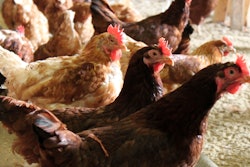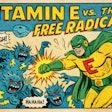
A group of researchers conducted an experiment that drove another nail into the coffin of suspicions that certain dog food ingredients directly related to cases of canine dilated cardiomyopathy (DCM). The scientists observed interactions among treatment, dog breed and time, making it impossible to isolate a direct diet association with heart health. The experiment did not identify the development of cardiac dysfunction over the study period, and diet couldn’t be isolated as a factor in DCM. The researchers published their research in Frontiers in Animal Science. This study and others like it demonstrate the ongoing repercussions of the United States Food and Drug Administration’s investigation of DCM.
FDA investigation into DCM and grain-free dog food
In July 2018, the FDA publicly announced the agency’s investigation into correlations among various dog foods and DCM. Federal authorities examined reports of DCM in dogs eating certain diets labeled as grain-free, particularly those containing peas, lentils, other legume seeds, or potatoes as main ingredients, which were more common in diets labeled as grain-free. A year later, the agency released data from their investigation that stated 93% of the 524 reported cases of DCM, involved dog foods made with peas and/or lentils, while 90% of the afflicted dogs had eaten diets labeled as grain-free. The FDA named 16 brands most frequently eaten by dogs involved in official reports of DCM. Sales of grain-free dog food overall, and those named brands especially, fell following FDA’s announcements, while more new products began to include taurine. Pet food companies adapted their marketing while developing new dog foods, treats and toppers specifically meant to ease pet owners' fears of DCM. Instead of claiming that all grains in pet foods were negative, brands became “grain friendly” as they began to include ancient grains or other “healthy grains” while continuing to malign conventional grains like wheat and corn.
In 2022, the FDA announced that it would end routine updates on the investigation into non-hereditary canine dilated cardiomyopathy. In total, the FDA received 1,382 reports of DCM from Jan. 1, 2014 to Nov. 1, 2022. However, most of those case reports clustered around the dates of FDA announcements about its investigation of correlations among grain-free dog foods and DCM, starting in 2018. The FDA stated it had insufficient data to establish causality among DCM case reports and pet food products eaten by afflicted dogs.
Although the FDA investigation caused upheaval in the pet food industry, scientists and others involved with the pet food industry have pointed out the lack of direct evidence connecting those grain-free dog foods to DCM, since the first FDA announcement. Likewise, some have criticized the FDA for going public with the investigation before solid evidence existed, especially considering the negative economic consequences for dog food brands.
Research on dog diet and DCM
The study involved 32 purebred beagles and 33 mixed-breed animals. These dogs were randomized into four diet groups, each with a unique dietary composition. The groups were as follows: high-animal-protein grain-free (HAGF), low-animal-protein grain-free (LAGF), high-animal-protein grain-inclusive (HAGI), and low-animal-protein grain-inclusive (LAGI). The researchers evaluated cardiac-specific biomarkers, conducted endomyocardial biopsies, and assessed linear and volumetric echocardiographic parameters.
One key observation suggests that diet impacts cardiac parameters differently in various breeds over time. On day 210, mixed-breed hounds fed the LAGI diet exhibited a smaller normalized left ventricular internal diameter at end-diastole compared to day 90. On the other hand, beagles fed the LAGF diet on day 210 displayed a larger normalized left ventricular internal diameter at end-systole compared to those fed the LAGI diet. Additionally, beagles in the LAGF group had significantly lower fractional shortening compared to dogs in the HAGI and LAGI groups.
Regardless of these changes, the study did not detect the development of cardiac dysfunction over the 210-day study period. This indicates that there were no significant differences between breeds, diets, and various time points in terms of cardiac-specific biomarkers and endomyocardial biopsies. The scientists recommended that future research could delve deeper into identifying the variables and potential mechanisms contributing to diet-associated DCM in dogs.
The study team involved academics and investigators with BSM Research, a pet care research, consulting, and strategy-to-shelf product innovation firm.

















